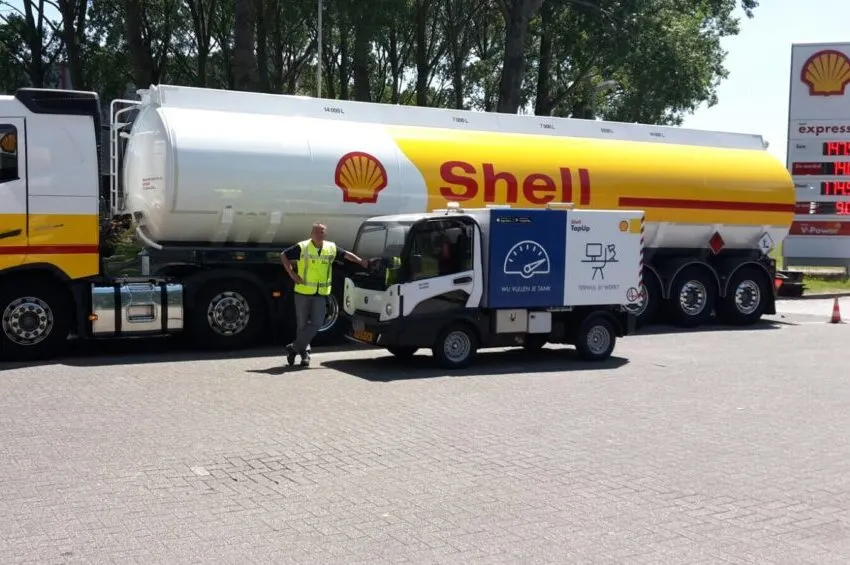And What Smart Customers Should Watch For
In the past decade, the fuel delivery industry has become something of a playground for innovation. Promising startups have burst onto the scene, sleek trucks have pulled up to curbs with app-controlled fueling, and marketing teams have promised “fuel at pump prices—delivered right to your vehicle.”
It sounds like the future. Sometimes it even looks like the future. But time and again, these companies disappear as quickly as they arrive.
The question is: why?
And more importantly: what does this mean for the people who actually depend on fuel—every day, without fail?
The Pitch That Sounds Too Good to Be True
From the outside, the fuel delivery business seems straightforward. Instead of sending drivers or workers to gas stations, bring the fuel to them. Skip the downtime. Save the labor. Improve logistics.
The idea is sound. The problem is the math.
Many newcomers to the space promise pricing only a few cents over rack price—the wholesale cost that fuel marketers and distributors pay when buying in bulk. These razor-thin margins sound appealing to fleet operators and businesses looking to save. But the promise hides the real cost of doing business.
Behind every gallon delivered are hidden layers of expense:
-
Licensed CDL drivers and insurance
-
DOT-certified fueling trucks and maintenance
-
Dispatch, routing, and compliance management
-
Hazmat handling
-
Fuel metering, reporting, and spill prevention
-
Customer support and 24/7 availability
A few cents margin doesn’t cover all of that—not even close.
The Trap of Scale Without Substance
Many of these companies rely on the assumption that if they grow large enough, fast enough, the margins won’t matter. The thinking goes: with enough volume, they can eventually turn a profit.
But volume without sustainability is a race against time—and against investor patience.
Some startups burn through millions trying to make the economics work, only to realize that a logistics-heavy, regulated industry like fuel delivery can’t be optimized the same way a ride-share app can. When margins are off by even a few percentage points, the losses scale right along with the growth.
Eventually, the app stops working. The service pauses. And the customer is left wondering what happened.
Fuel Delivery Is Not Just Tech—It’s Trust
There’s a fundamental misunderstanding that leads many of these ventures astray: fuel delivery is not just a logistics problem. It’s a reliability business.
In fuel, the product is only half the value. The rest comes down to:
-
Trust: Will the fuel arrive when it’s needed?
-
Consistency: Are deliveries accurate, clean, and safe?
-
Accountability: When things go wrong—as they sometimes do—who picks up the phone?
Local and regional providers have spent decades mastering this balance. They know their customers by name. They know which job sites are hard to access after a storm. They know what time generators need topping off, and which forklifts need to stay running on overtime shifts.
That institutional memory, that commitment to being reliable under pressure—that can’t be coded into an app.
What Smart Customers Are Starting to Notice
More and more, businesses are realizing that fueling isn’t a place to cut corners.
Whether it’s a construction crew that loses hours because generators didn’t get topped off, or a logistics company facing delays because reefer trailers went warm overnight—fuel is too important to gamble on.
The providers that thrive in this business are the ones who:
-
Price fairly and transparently (not just attractively)
-
Build long-term relationships
-
Invest in equipment, compliance, and training
-
Offer 24/7 dispatch, not just 24/7 dashboards
Customers are learning to look past the flash. They want service that works, not just service that looks good on a brochure.
The Case for Choosing Local
Every market is different, but in the end, fuel is still a physical product. It needs to be stored, transported, measured, and delivered by someone who understands the geography, the climate, and the industries they serve.
When you work with a local fuel provider—one who’s spent years building a business around service instead of speculation—you’re not just buying diesel. You’re buying:
-
Peace of mind
-
Operational confidence
-
A partner who will still be in business next year

Conclusion: Fueling Is a Commitment, Not a Campaign
It’s exciting to watch innovation unfold. And many ideas from the startup world have helped improve technology in the fuel industry. But innovation that forgets the fundamentals is doomed to fail.
The next time you see a new fuel service offering rock-bottom prices and big promises, ask yourself: What will this look like when I really need them? At 4:30 AM? On a rainy job site? In the middle of peak season?
Then call the company that’s been there before. The one that knows your name. The one that’s delivered fuel in the real world, under real conditions, time and again.
If you’re still sending your crew to gas stations or relying on inconsistent third-party fuelers, it’s time for an upgrade.
Anytime Fuel Pros delivers efficiency, cost savings, and reliable service—right to your job site.
📞 Call us today to schedule your first delivery or request a custom quote.

call
Comment *all